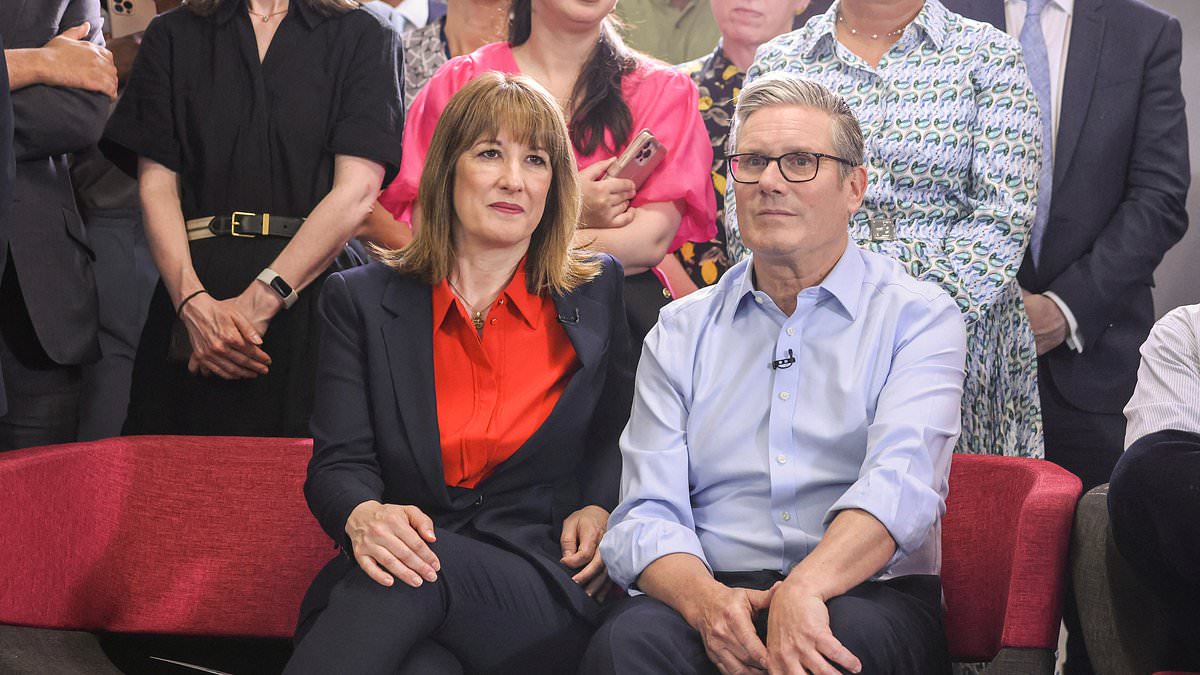By Editor James Tapsfield
Three-quarters of Brits believe Rachel Reeves will smash Labour’s vow not to increase income tax, national insurance or VAT.
A poll has revealed the depth of scepticism among the public about the manifesto commitments holding, despite repeated assurances from the Chancellor and Keir Starmer.
The YouGov research comes amid mounting fears that tax hikes – and big ones – are the government’s only option to balance the books at the Autumn Budget.
Economists have warned that stalling growth and U-turns on welfare curbs could mean the scale has to be similar to the last fiscal package, which added a record 拢41billion to the burden.
Labour promised at the last election that there would be no changes to income tax, VAT or NICs.
But some 35 per cent of Brits regarded action on the ‘big three’ tax areas as ‘very likely’, and a further 37 per cent said it was ‘fairly likely’.
Only 10 per cent thought it was unlikely, while 17 per cent said they did not know.
Even among Labour supporters 70 per cent expected the move, and the figure for Tories was 84 per cent.
The grim findings came as the Chancellor dropped another heavy hint that taxes will go up at the next Budget.
Ms Reeves said the package would ‘reflect’ the ‘cost’ to this week’s U-turn on welfare reforms – which the Treasury hoped would save 拢5billion by 2029.
But she insisted she would not change her ‘fiscal rules’ constraining borrowing, leaving tax rises as the most likely option.
Ms Reeves has also repeatedly stated she will not bring in a tax bomb as big as the 拢41billion imposed last year.
However, Ben Zaranko of the respected IFS think-tank said the increase in the burden could be of a ‘similar scale’.
He said ‘avenues are closing’ after department spending plans were fixed for the next three years and the government backed down on welfare.
‘It’s not hard to imagine a world where they are of a ballpark similar scale to last autumn,’ Mr Zaranko said.
‘If you have the perfect storm of economic forecasts being downgraded, additional spending commitments because these reforms haven’t got through parliament and the world is in a gloomier place generally, you could comfortably be into double figures billions even before you talk about any retail offers.
‘A 拢20, 拢30, 拢40billion budget is not what the government would want but it’s not impossible by any means.’
The Budget last year was the biggest tax raising package on record, including an eye-watering hike to employer national insurance that has been blamed for crushing business investment and recruitment.
Analysis by Deutsche Bank has suggested that the hole Ms Reeves needs to fill could be between 拢18billion and 拢32billion.
It pointed to market conditions adding 拢2-拢3billion to borrowing by 2029, and Donald Trump’s trade war impact costing approximately 拢5billion.
Productivity growth downgrades could degrade the fiscal position by another 拢15billion, while welfare backtracking is estimated to add up to 拢9.5billion to spending.
The analysts speculated that revenue-raising measures could include extending the hated freeze on income tax thresholds, with that stealth raid potentially raising 拢7billion a year.
Council tax reform was mooted to bring in 拢1 billion, raising the Bank Levy another 拢1.5billion and pension tax reliefs 拢2 billion.
Other measures including tax collection could drum up some more cash towards the gap.
But Deutsche Bank cautioned that if the shortfall is more than 拢20billion breaking the Labour manifesto and hiking income tax, VAT or NICs could be unavoidable.
It has emerged previously that Angela Rayner wrote to the Chancellor in March urging eight tax hikes, seemingly as a way to avoid benefits curbs.
They included reinstating the pensions lifetime allowance, changes to dividend taxes, a raid on a million people who pay additional rate income tax and a higher corporation tax level for banks.
